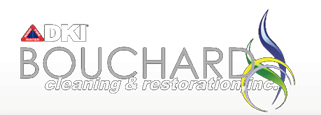How to prepare for an emergency, homeowner tips, and home safety.
How to prepare for an emergency
Make a “To Go Bag”
If you face an emergency such as a home fire or natural disaster, you may have to leave your home in a hurry. A to-go bag will help to minimize suffering with prepared items ready for use.
Make a bag for each member of the household, keeping in mind special needs for pets, babies, and small children.
- A current list of medications/ a few days of medications until refills of lost medications can be renewed.
- A Blanket
- Glasses/Contacts/ solution/case
- Insurance/ Banking information
- A list of emergency contacts (you may not have power to your phone or internet access)
- Extra clothes, socks, a sweatshirt, shoes, and undergarments.
- Hairbrush, toiletries (deodorant, soap, shampoo, conditioner, razor, toothbrush, toothpaste, lotion, nail clippers, nail file, ChapStick, hand sanitizer)
- Tylenol, Advil, Tums
- First Aid Kit
- Head lamp or flashlight
- Cell phone charger
- Water/ Snacks
- Diapers/ Formula/ Bottles/ Bottle brush/ Blanket and clothes for babies.
- Pet dish/ food/ water/ leash/ blanket for pets
- Hats, mittens
- Rain poncho
- Cash (When power outages are widespread, cash is needed.)
- Entertainment items such as toys for kids, word search puzzles, and books.
Build an emergency supply kit for your car because we never know when we will encounter a weather event or emergency road closure.
- Cell Phone Charger
- First Aid Kit
- Jumper Cables
- Flares, Flashlight, Emergency signs
- Water/ snacks
- Tire Chains or sand in winter
- Shovel, Ice Scraper, Snow Brush, and tow rope
- Blankets
- Hats, Mittens
Homeowner tips
Shut off valves: Learn where your shut-off valves are in case of an emergency. Tag it so it is easily visible if you need to turn off the water supply in a hurry. Shut-off valves are also located on each toilet and under each sink. If a pipe bursts, shutting these off will save possibly hundreds of gallons from spraying everywhere.
Furnace maintenance: Schedule a furnace cleaning annually. When a furnace malfunctions, it sends soot throughout your home. Annual maintenance is a good way to help prevent this type of disaster from happening.
Electrical panel: Each home or garage has its own electrical panel. Make sure to label each area specifically. If an emergency happens, you may need to know:
- Explain where the panel is located
- Location of appliances
- Specific rooms
In an emergency, do not walk through water to get to the electrical panel. Call for help.
Mold and other pest control concerns:
If you have found mold in your home, do not panic; there are solutions. If it is an area under 10 Square Feet, the EPA says that you can care for that yourself. Depending on where it is, removal is always your best option.
Note: Mold needs moisture to grow. First, identify where the extra moisture is coming from and address it. Mold spores come in on our clothes and shoes and is found in a typical dust sample in our homes, but WHY is it growing?
If the area is larger than 10 square feet, call a professional cleaning & restoration company to help.
Note: Not all companies are created equally. Some may not charge an assessment fee but charge four times the amount to remediate. Look at reviews and ask for referrals.
Note: Bleach does not kill mold. It is fine to use on non-porous surfaces; however, porous surfaces can harbor the roots of the mold and should be removed or HEPA vacuumed and treated with a professional product that is designated for mold removal.
Pests: Mold is not the only pest that can intrude. If you have discovered mice droppings, raccoons in the attic, or are worried about ticks in the yard, contact a local pest control company to help with removal. Once the pests are gone, a cleaning & restoration company can clean and disinfect these areas of concern.
Helpful tips and Home Safety
What should I keep my heat at in the winter? There is a lot of information online that says keeping your heat above 55 degrees in the winter helps your pipes from freezing. This may depend on a lot of factors, from the age of the home, the build, the outside temps, etc. In Maine, we would suggest a minimum of 68 degrees.
Heat distribution: In the winter, fans need to spin clockwise on low speed. This creates an updraft that helps move warm air trapped near the ceiling back out and around the room.
Set your thermostat to AUTO. The AUTO setting means that the fan is only engaged when the system is on, rather than constantly blowing. This is the most efficient setting.
Fire extinguishers: Accidents happen. Having a fire extinguisher on every level of your home and in your garage will protect you from further damage, and maybe even a total loss of your property. Whether you burn something on the stove, the lawnmower catches fire, or a candle spills, a fire extinguisher may be your saving grace. Practice using a fire extinguisher with family, and always call 911 when an emergency happens.
Smoke Alarms: On average, we have only 2 minutes to escape a home fire. Make sure you have smoke alarms on each level of your home. Hard-wired and battery-operated smoke alarms need to be replaced every 10 years.
Note: If someone in your home is hard-of-hearing or deaf, there are bed shake alarms to alert them of a fire. Gas alarms and carbon monoxide detectors should also be installed.
Fireproof safe: Disasters happen every day. Fires, burst pipes, and even natural disasters such as ice and windstorms can cause significant damage. Preparation is key! Place important documents in a fireproof safe. Ideally, you should have a video of each room included, and receipts for all items over $100.00 in the safe. If you lose everything in a house fire, you will need proof of items that you have purchased.
- Property insurance policies and agent contact information. This information is needed right away if your house suffers damage.
- Passports, social security cards, and original birth certificates.
- A list of family doctors, prescription medications, and contact information for all pharmacies you use.
- CDs or an external hard drive containing digital copies of all family photos.
- Important papers related to investments, retirement plans, bank accounts, and associated contact information. You may also want to keep some cash on hand for ready access in an emergency.
- Information on your outstanding debts, due dates, and contact information. It’s important to keep tabs on your finances and protect your credit in the event you’re displaced by a fire.
- Copies of your important legal documents, including powers of attorney, living wills, and health care proxies — both for yourself and for anyone else for whom you are designated attorney-in-fact or health care surrogate.
- Copy of wills and all wills in which you are designated the executor. It’s important to have access to these, as safe deposit boxes are typically sealed upon notification of the box owner’s death.
- Jewelry, coins, and cash that you may want access to from time to time.
- Spare Keys and titles to all vehicles.










